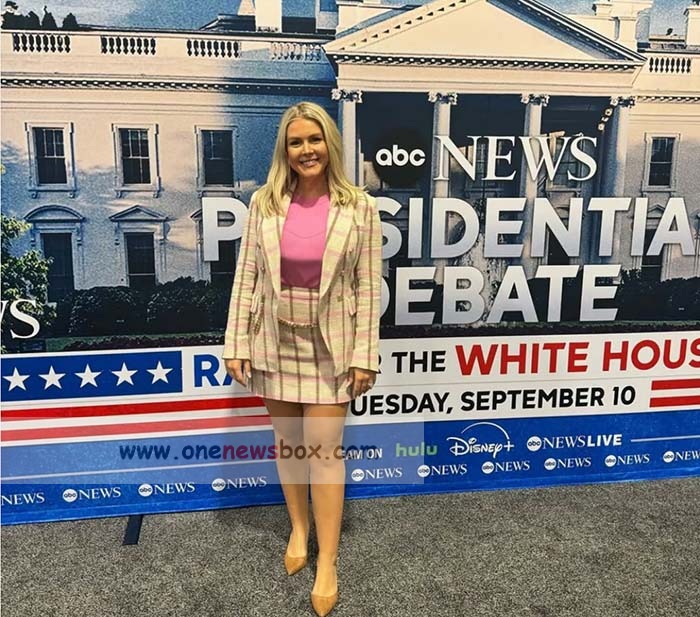March 2025 saw another firestorm after a private government group chat was inadvertently leaked to journalist Jeffrey Goldberg, editor-in-chief of The Atlantic. The chat revealed discussions of potential military action in Yemen. Rather than address the leak’s contents, Leavitt attacked Goldberg personally, labeling him a “registered Democrat” and “anti-Trump hater.” Her aggressive dismissal of a Pulitzer Prize-winning journalist raised questions about transparency, freedom of the press, and the administration’s commitment to accountability.
Personal Life
Karoline Leavitt is a practicing Roman Catholic. She has repeatedly cited her faith and Catholic school education as the foundations of her pro-life stance and civic values. In interviews, she often reflects on how religious teachings shaped her views on morality, discipline, and service to others.
Leavitt married Nicholas Riccio, a real estate developer 32 years her senior, in a private ceremony in January 2025. The couple announced their engagement in December 2023 and welcomed their first child, a son, on July 10, 2024. Leavitt had initially planned to take maternity leave but reversed course following the attempted assassination of Donald Trump in July 2024. The dramatic event, which rocked American politics, inspired her to resume her duties, viewing her role as vital to national stability during turbulent times.
Legacy and Outlook
As of 2025, Karoline Leavitt remains a defining voice of the post-2020 Republican Party. To her supporters, she is a model of conviction, courage, and youthful leadership. To critics, she represents the perils of ideology-driven communication and the growing polarization of American political discourse.
Leavitt’s career is still unfolding, and given her youth, ambition, and alignment with Trump-era populism, her influence will likely extend beyond her current role. Whether she will remain a loyal spokesperson or chart an independent political future remains to be seen. But one thing is clear: Karoline Leavitt has already made her mark as a central figure in one of the most consequential and contentious periods in modern American political history.

